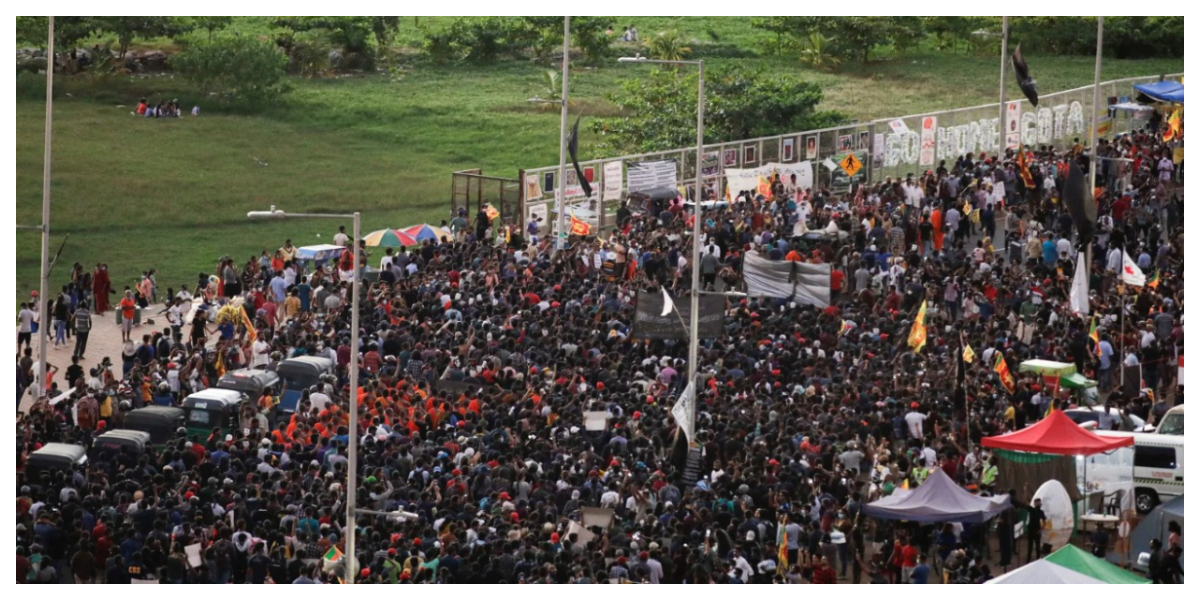A general strike crippled Sri Lanka on Thursday, as demands grew for President Gotabaya Rajapaksa and his family members to resign over the country’s worst-ever economic crisis.
The island nation of 22 million people has been hit by months of acute shortages of food, fuel and medicines, prompting widespread protests. Thursday’s strike, however, was the first time the entire country had been brought to a standstill since those demonstrations began.
Public transport was stopped, school attendance dropped and shops and offices remained closed across the country, police and regional officials said.
On Friday, President Rajapaksa will meet with political party leaders to discuss the problem. On Wednesday, Prime Minister Mahinda Rajapaksa, Gotabaya’s older brother and a former two-term president, reaffirmed his belief that he would not be ousted as a result of the situation.
Wholesale traders’ businesses in Pettah, Colombo’s largest commercial district, remained closed, and workers joined a march screaming “Go home, Gota.” “Go home, Gota,” the president said.
[embedpost slug=”anton-roux-appointed-as-sri-lankas-national-fielding-coach/”]
More than 100 trade unions joined the national strike, some of which are linked with the Rajapaksas’ ruling Sri Lanka Podujana Peramuna (SLPP) party. Participants are demanding that the president, prime minister, and other key officials resign.
“Today is like a national holiday in the country,” an anonymous police official monitoring the situation on the island told AFP. “Hospitals are just handling emergencies.”
On Thursday, more than 100 labour unions participated in the walkout, including those affiliated with the ruling party.
Vegetable markets were shuttered across the country, as were the country’s tea estates, which are a major export earner, according to residents and local media.
The country’s economic difficulties began when the coronavirus pandemic decimated tourism and remittances from Sri Lankans living overseas. Protesters also accuse the Rajapaksa family of mismanagement over the years.
The government has defaulted on its $51 billion external debt and is seeking an emergency bailout from the International Monetary Fund.
Due to a lack of funds to pay for fuel imports, utilities have imposed daily blackouts to ration electricity, while long lineups snake around service stations for diesel, petrol, and kerosene.
Hospitals are in desperate need of essential medicines, and the government has called for donations from residents around the world.
Thousands of protesters have been camped outside the president’s sea-front office for weeks, demanding that he quit.

















